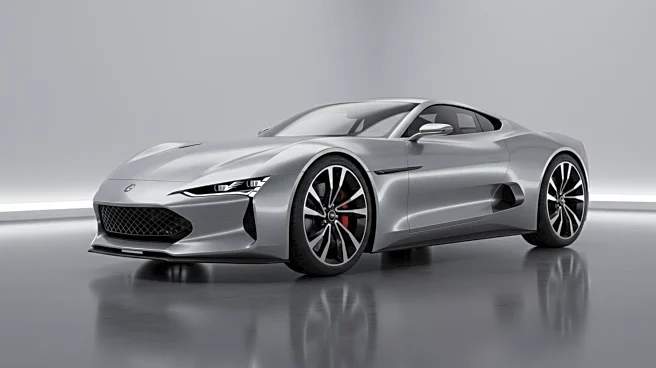What's Happening?
Lexus has unveiled a new sports concept car, referred to as the 'LFR', which marks a shift from its previous plans to develop an all-electric sports vehicle. The 'LFR' concept draws design inspiration from the Lexus LC and LFA models, as well as the Electrified Sports concept introduced in 2021. Initially, Lexus had announced plans for an electric sports car featuring solid-state batteries, promising a range of 435 miles and rapid acceleration. However, changes in market sentiment and a slowdown in the growth of electric vehicles have led Lexus to reconsider its strategy. The new concept car is expected to be powered by a gasoline engine, possibly a twin-turbo V-8, and will have a Toyota counterpart. While Lexus has not officially canceled the EV sports car project, the focus appears to have shifted towards internal combustion and potentially hybrid models.
Why It's Important?
The shift in Lexus's strategy reflects broader trends in the automotive industry, where the initial enthusiasm for electric vehicles is being tempered by practical considerations and market realities. This decision could impact the future of sports car development, as manufacturers balance the demand for high-performance vehicles with environmental concerns. The move may also influence consumer expectations and preferences, as Lexus and other automakers navigate the evolving landscape of vehicle electrification. The introduction of a gas-powered sports car could appeal to traditional car enthusiasts who prioritize performance over sustainability, while hybrid models may offer a compromise between the two.
What's Next?
Lexus is expected to continue developing the 'LFR' concept into a production model, with potential hybrid variants to compete with electrified offerings from other luxury brands like AMG, Porsche, and Corvette. The company may also reassess its EV strategy in response to market demands and technological advancements. Stakeholders, including consumers and environmental groups, will likely monitor Lexus's decisions closely, as they could signal broader shifts in the automotive industry's approach to sustainability and innovation.
Beyond the Headlines
The decision to prioritize a gas-powered sports car over an electric model raises questions about the long-term environmental impact of luxury vehicles. It also highlights the challenges automakers face in balancing performance with sustainability. As the industry evolves, ethical considerations regarding emissions and resource use may become increasingly important, influencing both corporate strategies and consumer choices.










